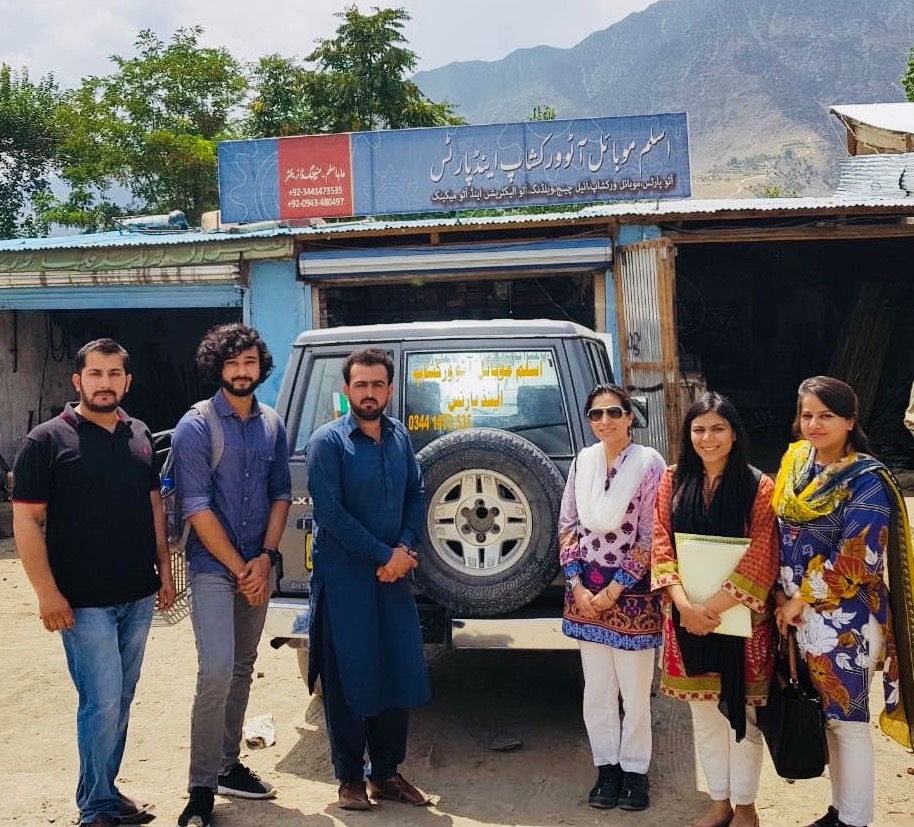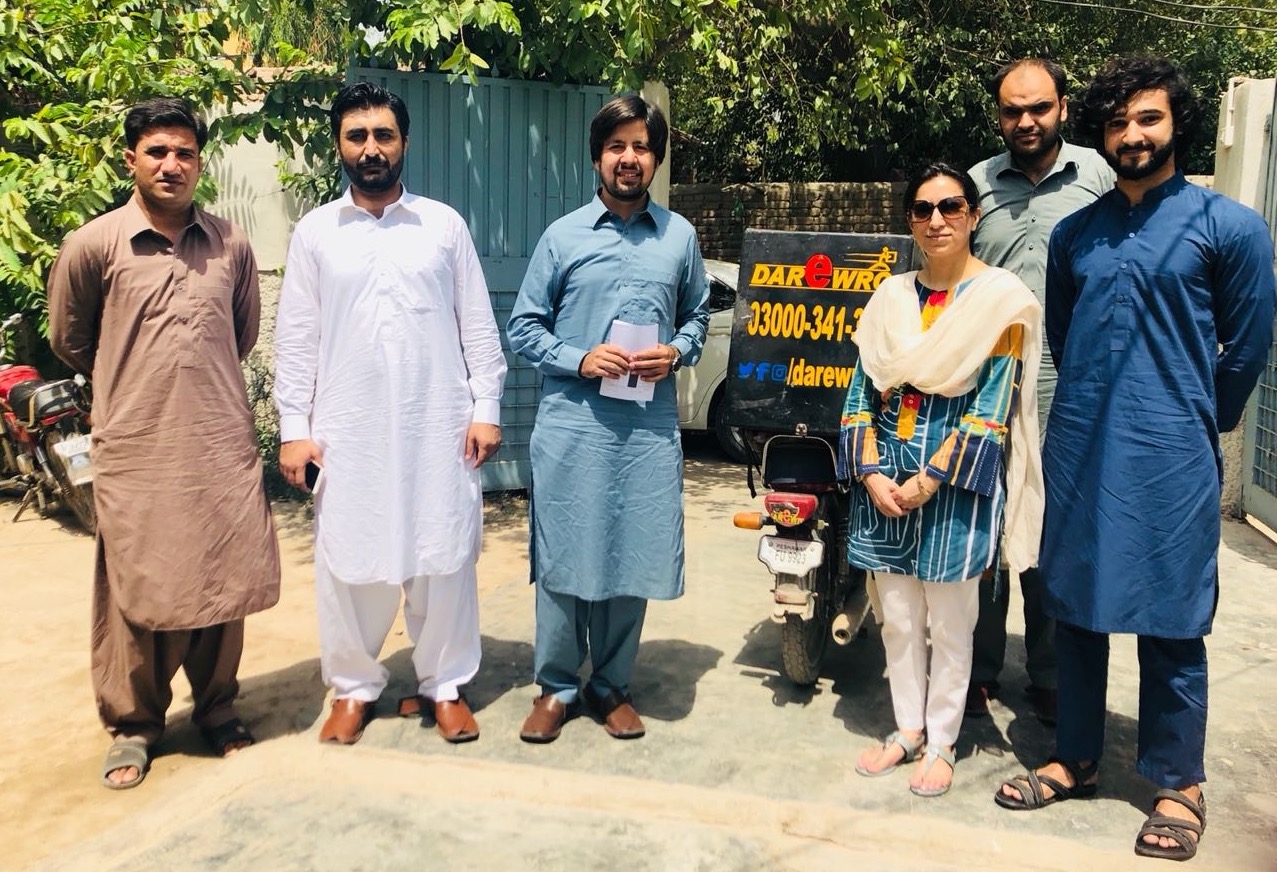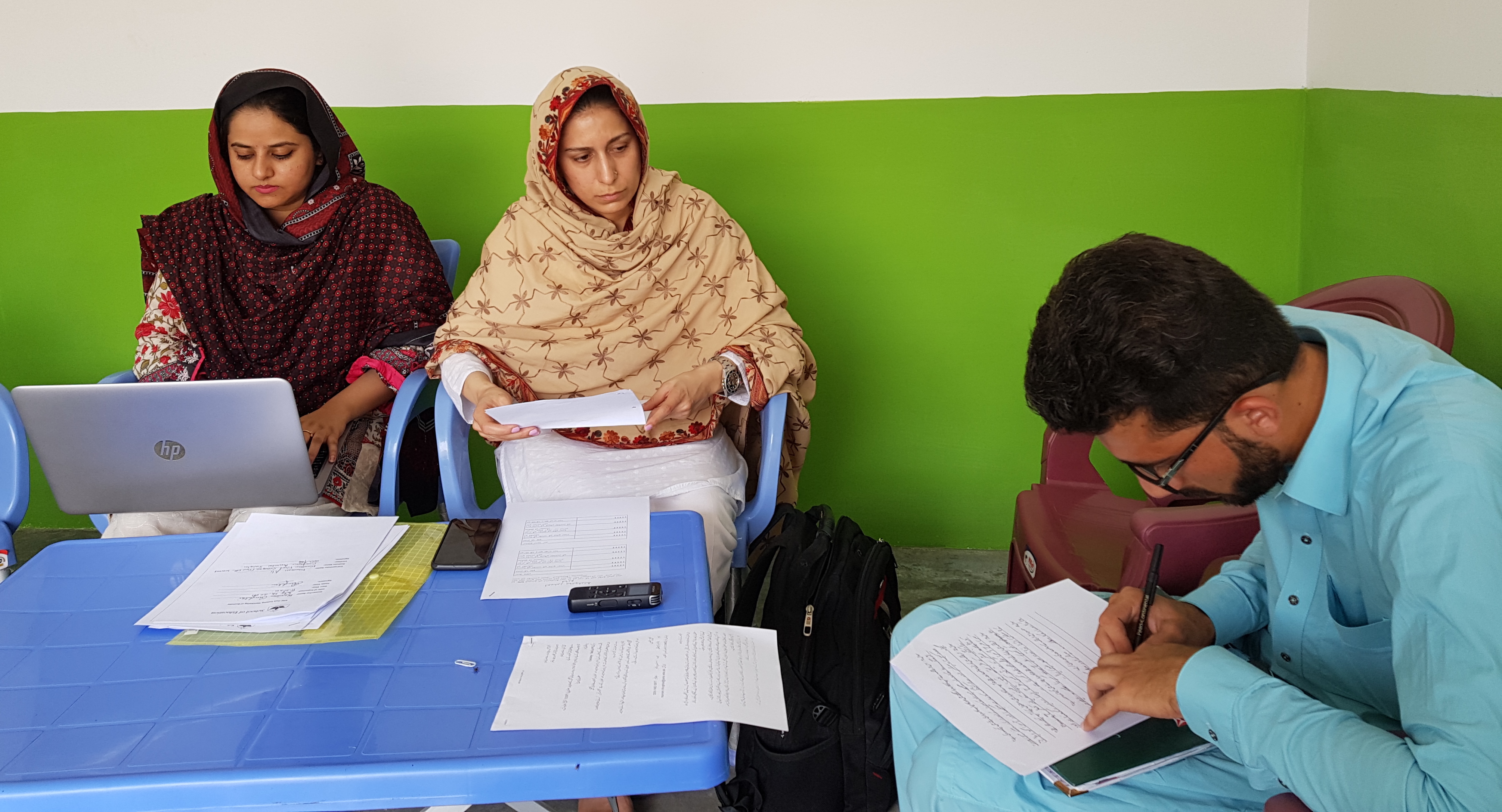 As a graduate student at Harvard University, Mariam Chughtai was already making a name for herself. She was the leader of a student movement to set up a university-wide student organization centered around Pakistan, faced with one problem: At the time, Harvard didn’t allow university-wide organizations. Yet, knowing Pakistan’s issues needed to be viewed through a cross-disciplinary lens, Chughtai sought out university partners who could help her cause.
As a graduate student at Harvard University, Mariam Chughtai was already making a name for herself. She was the leader of a student movement to set up a university-wide student organization centered around Pakistan, faced with one problem: At the time, Harvard didn’t allow university-wide organizations. Yet, knowing Pakistan’s issues needed to be viewed through a cross-disciplinary lens, Chughtai sought out university partners who could help her cause.
Her search brought her to The Mittal Institute, whose leaders were looking to add greater geographic representation to the Institute’s repertoire. Through their partnership, Chughtai’s movement turned into a fully-recognized organization and paved the way for the creation of future university-wide student organizations at Harvard. Years later, Chughtai became the first member of The Mittal Institute's presence on the ground in Pakistan, helping the Institute expand its in-region work.
Chughtai is no stranger to changing perspectives and challenging the status quo. Today, as The Mittal Institute’s Babar Ali fellow, she is writing a book that explores the tension between the politics and culture of Pakistan to rewrite the narrative that has been erroneously given to the nation.
What Is Pakistan?

Chughtai's book builds on an idea she developed in her doctoral dissertation. "The education system in Pakistan is used to make and break identity in Pakistan," she explains. "It's a larger commentary on Pakistan and its trajectory in the last 70 years. It's looking at the politics of identity, religion, and terrorism. Embedded within that is the conversation about what the role of education has been in making society [the way it is]."
Her research stands to challenge the staunch Western notion that instances of violence in Pakistan can be generalized across an entire population as a violent nature. "The culture of Pakistan is [made up] of a mass majority of people who are very devout Muslims — but they're not violent. Even as the politics [of Pakistan] keep experimenting, the larger fabric of society remains overall peaceful," Chughtai states.
"There is a lot of misconception about what Pakistan is or that there even is one Pakistan. There are a lot of books out there that try to make sense of Pakistan in broad brushstrokes — but not only is that incorrect, it's reckless. We are nowhere closer to solving Pakistan's problems by oversimplifying them."
Today, the media paints Pakistan as a violent, unchangeable place, but Chughtai knows that's not true. "My book is trying to lay out the complexity of Pakistan in a way that allows us to have not just a deeper understanding of what the problem is, but to have more truthful conversations rather than ones that make easy sound bites in the media." Just like an individual, the identity of a nation is complex.
"The current narrative," Chughtai states, "only hurts us."
A New Kind of Education

In 2015, Chughtai moved back to Pakistan and teamed up with Dr. Tahir Andrabi, Stedman-Sumner Professor of Economics at Pomona College, to carry out a project assigned by Syed Babar Ali, the inaugural donor from Pakistan to The Mittal Institute and funder of the Institute’s Syed Babar Ali Fellowship.
Their mission was to establish a first-of-its-kind School of Education at the Lahore University of Management Sciences (LUMS SOE). Just two years later, they launched the Syed Ahsan Ali and Syed Maratib Ali School of Education. “The main ethos of the school is to operate at the nexus of research policy and practice to enable our students to consume leading research and bring it into practice,” Chughtai explains.
Though currently on leave from her primary affiliation as Associate Dean and Assistant Professor at LUMS SOE, Chughtai’s first major project there centered around the province of Khyber Pakhtunkhwa.
Inside Khyber Pakhtunkhwa

Partnered with the Department of Youth Affairs through LUMS, Chughtai has built a massive, $4 million project in the province of Khyber Pakhtunkhwa to explore entrepreneurship, youth, and identity in the country. Today, she serves as the initiative’s project director.
“We have the mandate to select youth from across the province with a special focus in rural youth and on women,” Chughtai explains. Through this project, youth are trained to become entrepreneurs, and are then recommended to the government for grants to start a business. Currently, over 350 youth entrepreneurs have received training.
It all stems from the need to address the growing youth bulge in Pakistan. Chughtai explains, “Even if you quadruple the amount of jobs there are overnight, you still cannot absorb all the people. You need to train young people from high school onward how to think as entrepreneurs — to become job creators, not jobseekers.”
Changing the direction of a nation begins with changing the individual. But for those who have experienced life in the most conflict-struck region of Pakistan — the Federally-Administered Tribal Areas (FATA) — the politics of identity is more challenging. Chughtai has seen it happen with her own eyes, beginning with radicalized youth who have rebuilt their identity and transitioned back as deradicalized youth into society.
Changing Perspectives and Identity
In Khyber Pakhtunkhwa, Chughtai works with a nonprofit organization called Sabaon that runs a de-radicalization camp for youth. “A number of young kids from ages 13 to 14 are either coming from dysfunctional families or coming out of post-conflict zones [in FATA], and they get picked up by terrorist groups and organizations,” she explains.
The army may bring those who have been caught working for these organizations to Sabaon to prevent their return to a terror organization. Through Sabaon, those who have been radicalized receive an education, earn degrees, and learn how to reintegrate into society and build lucrative lives for themselves — away from terror groups.
Sabaon has worked with 211 youth already, 39 of whom have completed the program and have been reintegrated into society. “There has been zero recidivism,” Chughtai states. “I think the success of this model can really help us understand not just what’s happening in South Asia, but also how malleable identity is and how it can be changed for the better.”

That changing aspect of identity ties into Chughtai’s upcoming book. “One aspect of my book is looking at what makes a militant. Education has a role in it, culture has a role in it, politics has a role in it. But that’s not unique to Pakistan,” she explains.
“To say that the public education system in Pakistan or the larger Pakistani society is mass producing militants is so far away from the truth. That kind of narrative may sell well in Washington, DC, but that [viewpoint] just ends up being a distraction in real discourse around how to solve the problems of violence and identity in South Asia.”
Rewriting the Narrative
In time, understanding how identity and violence works can change a nation’s narrative. Through her book, Chughtai intends to demonstrate that the perceived narrative about Pakistan is not necessarily the correct narrative. And she doesn’t take that opportunity lightly.
“The Mittal Institute really encourages people to grow and pursue their dreams, and I am a walking, talking example of that.”
Recently, the Mittal Institute hosted a book workshop with Dr. . . .
